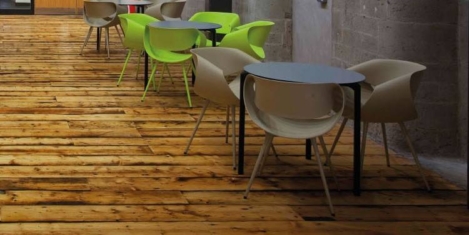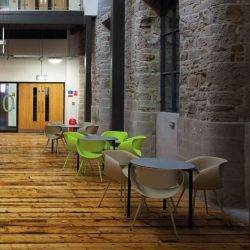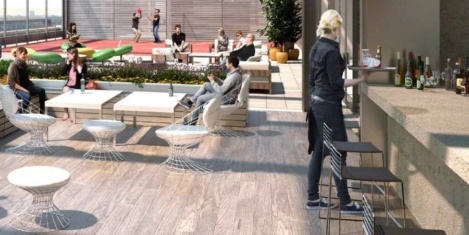June 8, 2017
Long term problems predicted for EU businesses if gender pay gap persists 0

As we reported earlier this week, more needs to be done to ensure that female representation in the boardroom increases; and now a new report paints a negative future for European businesses if the pay gap isn’t adequately addressed. Mercer has warned that a failure to address the EU’s substantial gender pension gap (40 percent), could cause long-term problems for businesses and governments alike; as through its analysis, the consultancy has found that the pension gap varies widely from one member state to another, however half have gaps of 30 percent or more. In its white paper The Gender Pension Gap – From Awareness to Action Mercer outlines the key drivers behind the pension gender gap, how it will impact companies and how they can start to address it within their workforce. Women continue to be significantly under-represented at all levels of the work force; in the EU their participation rate is 10 percent lower than men. The European Commission’s recent proposal for a directive on work-life balance for parents and carers, including the introduction of carers’ leave for dependent relatives, aims at addressing this under-representation.





 Most FMs would tell you that the state of the workplace toilets is often one of the main determinants by occupants on how well the facilities department is doing its job. So it’s disturbing to learn that according to a new survey a significant number of employees have cause to complain about the state of their workplace toilet facilities. The research, carried out by the Association of Plumbing & Heating Contractors claims that 16.5 percent of people are unhappy at work due to the condition of their employer’s toilets which is having a negative impact on their levels of engagement. Their research found 43.8 percent of the people surveyed felt their workplace toilets needed to be better maintained. And when asked if their workplace toilets require updating or refurbishing, 44.4 percent said they did. London seemingly has the worst workplace toilets with 50.9 percent of workers surveyed believing they need to be better maintained and require refurbishing.
Most FMs would tell you that the state of the workplace toilets is often one of the main determinants by occupants on how well the facilities department is doing its job. So it’s disturbing to learn that according to a new survey a significant number of employees have cause to complain about the state of their workplace toilet facilities. The research, carried out by the Association of Plumbing & Heating Contractors claims that 16.5 percent of people are unhappy at work due to the condition of their employer’s toilets which is having a negative impact on their levels of engagement. Their research found 43.8 percent of the people surveyed felt their workplace toilets needed to be better maintained. And when asked if their workplace toilets require updating or refurbishing, 44.4 percent said they did. London seemingly has the worst workplace toilets with 50.9 percent of workers surveyed believing they need to be better maintained and require refurbishing.














 The British Institute of Facilities Management (BIFM) has issued updated guidance to help in-house FM teams understand what is involved in managing and changing space. The revised Space Planning and Management Good Practice Guide aims to provide practical advice on the tools and techniques that can be deployed when planning and managing space, clearly illustrating the processes involved and enabling facilities managers to set overarching space management strategies for their organisation. Key areas covered in the guide include space demands, strategy and standards, programming and managing projects and the technologies available to help with the process. The guide has been updated by its original author Joanna Eley, director of Alexi Marmot Associates.
The British Institute of Facilities Management (BIFM) has issued updated guidance to help in-house FM teams understand what is involved in managing and changing space. The revised Space Planning and Management Good Practice Guide aims to provide practical advice on the tools and techniques that can be deployed when planning and managing space, clearly illustrating the processes involved and enabling facilities managers to set overarching space management strategies for their organisation. Key areas covered in the guide include space demands, strategy and standards, programming and managing projects and the technologies available to help with the process. The guide has been updated by its original author Joanna Eley, director of Alexi Marmot Associates.
 One in seven SME employees admit to feigning illness and taking at least three bogus sick days off each year in order to cope with a culture which expects them to be available all the time. Nearly half (42 percent) of staff who are pulling sickies do so because they need a rest as just under half (46 percent) of SME employees bother to use up their full holiday allowance. At the end of 2016, SMEs employed 15.7 million people and accounted for 99 percent of all private sector businesses. Due to the piling pressure on small business owners, half (51 percent) of the 1,500 British SME workers and business owners who were polled by breatheHR confessed to contacting an employee while they were on sick leave – this number jumps to 72 percent for younger business owners (18-34-year-olds) showing clear generational differences. Additionally, three-quarters (71 percent) of business owners would expect employees to work if they had a common cold. Why? Because absenteeism impacts the bottom line – 85 percent of business owners say it has an economic effect.
One in seven SME employees admit to feigning illness and taking at least three bogus sick days off each year in order to cope with a culture which expects them to be available all the time. Nearly half (42 percent) of staff who are pulling sickies do so because they need a rest as just under half (46 percent) of SME employees bother to use up their full holiday allowance. At the end of 2016, SMEs employed 15.7 million people and accounted for 99 percent of all private sector businesses. Due to the piling pressure on small business owners, half (51 percent) of the 1,500 British SME workers and business owners who were polled by breatheHR confessed to contacting an employee while they were on sick leave – this number jumps to 72 percent for younger business owners (18-34-year-olds) showing clear generational differences. Additionally, three-quarters (71 percent) of business owners would expect employees to work if they had a common cold. Why? Because absenteeism impacts the bottom line – 85 percent of business owners say it has an economic effect.















